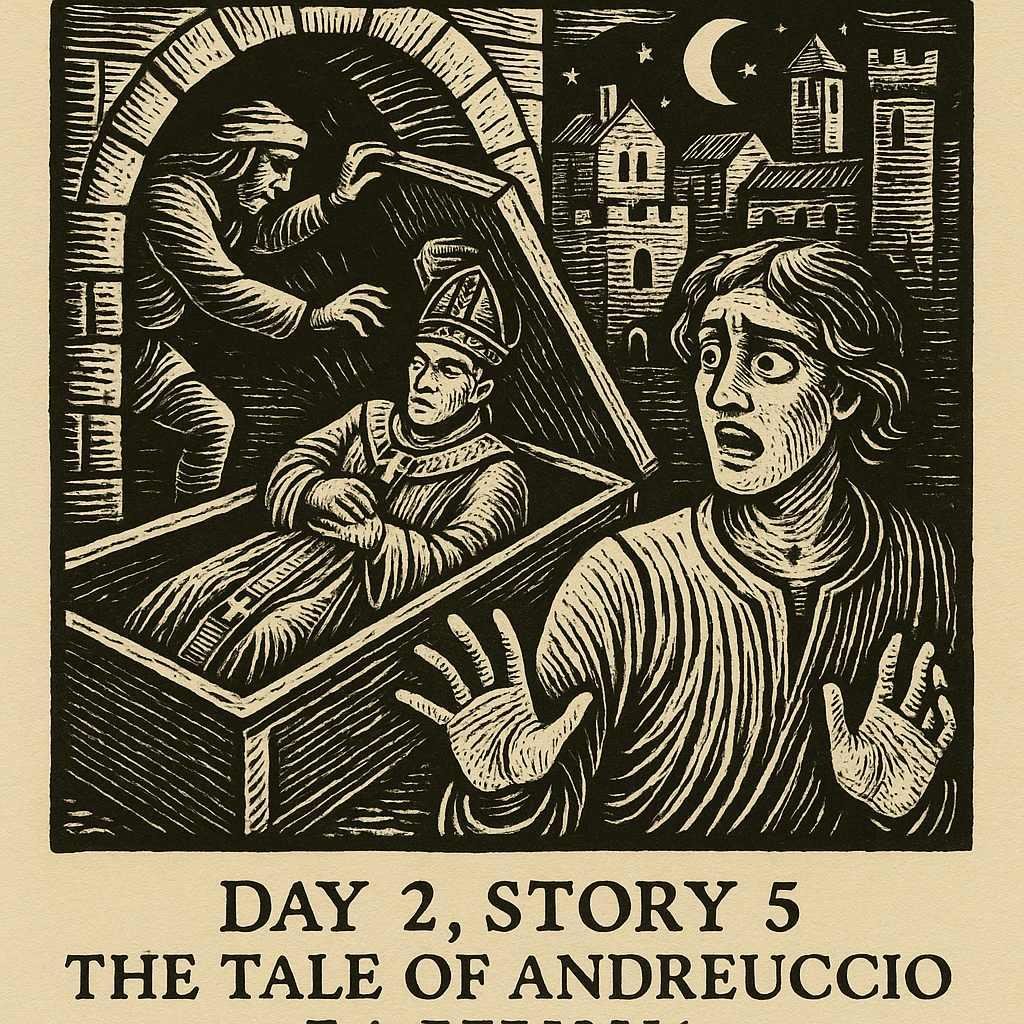The Many Lives of Alatiel: Beauty, Silence, and Survival in Boccaccio’s Decameron

Introduction
In Giovanni Boccaccio’s The Decameron, the tale of Alatiel stands out as a complex exploration of female identity, reputation, and survival. Narrated on the second day by Filostrato, the story recounts the unbelievable misadventures of a beautiful Saracen princess who, despite being passed from man to man across multiple kingdoms, manages to return home and marry a king while still claiming to be a virgin. This ironic and provocative tale offers sharp commentary on gender expectations, the performance of chastity, and the value of silence—both in the 14th century and today.
Summary
Alatiel, daughter of the Sultan of Babylon, is sent to marry the King of Algarve in a political alliance. But before she arrives, a storm causes her ship to wreck, and she begins a long journey through the Mediterranean. Over the course of four years, Alatiel becomes the lover of eight different men, each losing her either through betrayal, war, or misfortune. Ultimately, she is rescued by a merchant who returns her to her father. With the help of a cunning servant, she fabricates a story of seclusion and virginity, and successfully marries the King of Algarve as originally intended.
Analysis
Boccaccio uses irony as a central literary device in this tale. The contrast between Alatiel’s actual experiences and her final claim to untouched virtue is striking. Rather than punishing deception, Boccaccio seems to reward Alatiel’s cleverness and adaptability. The tale subverts expectations about female purity: Alatiel is not condemned for her sexual history, nor is she forced to confess it. Instead, her survival depends on her silence and the manipulation of societal assumptions about female modesty and virtue.
The character of Alatiel is fascinating not because of what she says—she speaks very little—but because of what she endures and how she is perceived. Her beauty is both a blessing and a curse; it grants her favor and survival but also invites danger and possession. The men around her act impulsively, driven by desire or ambition, while she remains composed, almost passive. Yet this passivity is misleading—her eventual fabrication of her past is an act of agency. She reshapes her narrative and reclaims control in a world that repeatedly objectifies her.
The tale also reflects 14th-century anxieties around women's sexuality and reputation. In medieval society, a woman’s honor was tied to her chastity, yet Boccaccio complicates this idea by allowing a woman who has had many lovers to be socially “reborn” as a virgin. This challenges the rigid moral expectations of the time, suggesting that appearances and storytelling are more powerful than truth. Furthermore, the use of foreign settings—Alatiel is Saracen and travels through Muslim and Christian lands—highlights cultural differences while blurring them. Her experience, though exoticized, mirrors concerns familiar to Boccaccio’s European readers.
For modern readers, Alatiel’s tale resonates with contemporary discussions about female agency, sexual freedom, and the policing of women’s bodies. In a world still fraught with double standards, her story feels surprisingly relevant. Her silence can be read as complicity or strategy; her endurance as passivity or quiet resistance. Either way, she navigates a male-dominated world and emerges victorious, if not unscathed.
Personal Response
I found Alatiel’s story both troubling and compelling. What stood out to me was Boccaccio’s refusal to moralize her journey in the expected way. Instead of condemning her, he seems to admire her cunning. While I was initially disturbed by the lack of agency she seems to have during her travels, I came to see her final reinvention as a subtle assertion of power. The tale made me reflect on how stories—especially those about women—are shaped by who tells them and why.
Conclusion
The tale of Alatiel is not just a story of survival—it’s a meditation on identity, narrative, and the value of performance in maintaining social order. Boccaccio’s use of irony and character inversion invites readers to question the meaning of virtue and the power of perception. Even centuries later, Alatiel’s story challenges us to think critically about the stories we accept, the roles we play, and the truths we choose to reveal—or conceal.
##TheDecameron ##LiteraryReview ##MedievalLiterature ##TheAlatiel ##Beauty ##Silence ##Survival ##Boccaccio








